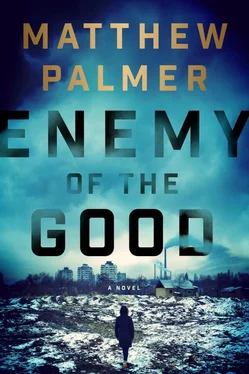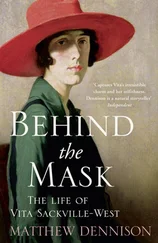“Americans have been conditioned to think that victory looks like the surrender ceremony on the deck of the battleship Missouri . Unconditional and absolute. Total domination. A clean win with sharp corners and no room for uncertainty or ambiguity. But that’s a fantasy, at least in this century. If you insist on absolute purity, you risk coming away with nothing. Diplomacy is the art of the possible. And you should never allow the best to be the enemy of the good. That’s the world that you and I inhabit.”
“The purists certainly had their comeuppance in Iraq,” Kate observed. “Things didn’t quite work out the way the neocons had envisioned.”
“Indeed not. They promised we would be greeted with flowers as liberators, and at the time I suspect they very much believed that that was true. So now the pendulum has swung back the other way and we are prepared to accept a little bit less purity in exchange for a little bit more security.”
“And does that include Eraliev?”
“Up to a point.”
“He killed your brother.”
The expression on his face betrayed a sense of grief and loss. It was fleeting, but that only made it more powerful, and Kate felt guilty for making the point so bluntly. Her uncle was in a difficult position, caught between duty to country and obligation to family.
“It’s possible,” he admitted after a moment’s thought. “And I understand why you’re so committed to that theory. There’s no larger meaning in a tragic accident. But there’s no hard evidence of government involvement. And even if the rumors were true, it wouldn’t really matter. This isn’t about me or you. It’s about the United States. Regime change is not our policy here. Not for now, at least.”
Kate wished that she could be so dispassionate about the man she believed responsible for her parents’ death. But she knew that she would never develop that sense of professional distance. It was all too close and too personal.
“But isn’t it in the interest of the United States to get rid of Eraliev? To help build a democratic Kyrgyzstan?”
“Without a doubt. But if we aren’t prepared to invade and occupy this place to make it so, then we are going to have to learn to work with this government, at least for a while, and support change slowly over time. And until that day, there are certain things that we are going to want from this government, no matter how unattractive it is.”
“So what do we want from Eraliev?”
“Birlik.”
“The one-horse town down near the border with Tajikistan?”
“One horse, yes. And one Soviet air base, albeit one that needs to be rebuilt from the ground up at considerable expense. But still and all, one that offers unprecedented opportunities to project air power across central Asia. And we are negotiating with the Eraliev government on a ninety-nine-year lease for that base. This will help us amortize the costs.”
“Why do we need the base?”
“In a word: China. The Great Game in Central Asia is back on, only with the U.S. and China dueling on the Field of Mars rather than the UK and Russia.”
For much of the nineteenth century, the British and Russian empires had rubbed up against each other in Central Asia with the kind of tectonic force that produced the Himalayas. The British were afraid that the tsar’s troops would subdue the Central Asian Khanates of Khiva, Bukhara, and Kokand and use Afghanistan as a staging area for an invasion of India, the jewel in the crown of the empire. The Great Game, the struggle for influence and dominance, was played on the battlefield, but it was also played by spymasters and diplomats, journalists, and businessmen. It was the kind of full-spectrum conflict at which successful empires excel, and which can ultimately drain even the most powerful of them dry.
“It’s hard to see how one little air base is going to determine the future of big power relationships. We had an air base here until two years ago out at Manas airport. That hardly seems to have been a game changer in the region.”
“That was a transit base,” her uncle replied. “It was all oriented toward supplying the troops in Afghanistan. That fight was always destined to be a sideshow. The base at Birlik would be the real thing, a platform for power projection across Central Asia and western China with advanced fighters, bombers, and AWACS aircraft. It would force China to shift significant forces inland, away from the Taiwan Strait and the South China Sea, to counter our position in the interior. The Birlik base would actually be bolstering our position in the Pacific, and that’s the biggest prize of this century.”
“I understand that,” Kate said. And she did. It was Great Power Diplomacy 101. “So, are you running the negotiations with Eraliev?”
“I’m just the local muscle,” the ambassador demurred. “I work the issues from here, but the overall lead is Winston Crandle.”
“The Fossil?”
“The same. Still nostalgic for Mutually Assured Destruction.”
Ambassador Winston Crandle was the deputy secretary of defense, a one-time FSO who had transitioned to Democratic Party politics and reinvented himself as the leader of the party’s “realist wing” of foreign policy strategists. He did not lack for experience. Crandle had joined the Foreign Service in the early days of the Johnson administration and had been a staff aid to Dean Rusk. Later he had hitched his wagon to a rising star named Henry Kissinger. He had been ambassador three times, most recently to NATO, and although he was well into his seventies, his nickname, the Fossil, was more a comment on his worldview than his advanced age. He was a hardened Cold Warrior—one of the fire-breathers who secretly hoped that China’s ascension to the rank of peer competitor of the United States would return a kind of moral clarity to American foreign policy and push the self-defeating “war on terror” to the margins of global affairs where it belonged.
“And he comes here?”
“Regularly. I’ll make you his control officer for the next visit, but you’ll have to behave yourself.”
“I’ll be good, I promise. But I have to tell you that I’m not sold on this.”
“How so?”
“The base deal would come at a price, a steep price. And I’m afraid that we’re falling victim, again, to short-termism. We have a clear vision for what we want this country to become: stable, free, prosperous, democratic, and allied to the West. But we want something from Eraliev right now and we’re prepared to mortgage that future in exchange for immediate gratification. It’s not a recipe for long-term success in this region.”
“I wouldn’t use that frame,” the ambassador suggested. “What we struggle with, not only here in Kyrgyzstan but everywhere in the world, is what I call values complexity.”
“A new term for me, I’ll admit.”
“My own coinage. The United States of America is an empire. Our interests span the globe and our appetites are all but limitless. Every problem is our problem and we want many, many things. Sometimes our interests are complementary. We want country X to buy American goods, so we hope it’s rich enough to afford our airplanes and iPads. As it so happens, country X is also an American ally and a functioning democracy, so we want it politically stable. Prosperity supports both goals. Everyone wins.
“But sometimes our interests are contradictory. We support human rights and religious freedom, but not if it means Saudi Arabia won’t sell us oil or make nice to Israel. So we tend to downplay the whole freedom thing when we’re kissing al-Saud’s… ring. We oppose human trafficking and forced labor, but we like cheap sneakers. Democracy is great. But what do we do when the public votes in leaders we find objectionable, genocidal scumbags, for example, or fanatical jihadists? Life is complicated. In any given situation there are hundreds of factors and dozens of values that we need to balance against each other. The process of finding that balance is what we call policy making. It’s what you and I do for a living on behalf of the American people, and it is an honor and a privilege to shoulder that responsibility.”
Читать дальше












